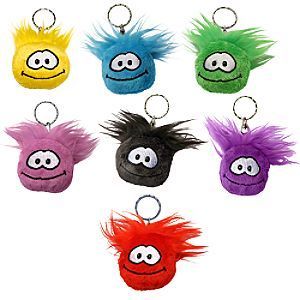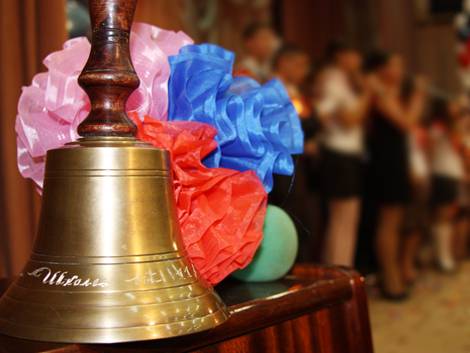Оскорбление
In a perfect family we would always say nice and positive things to each other, but sadly we do not live in a perfect world, and sometimes we have to deal with insults. The Russian word for insult is оскорбление. This word declines this way:
| Sg | Pl | |
| Nom | оскорбление | оскорбления |
| Acc | оскорбление | оскорбления |
| Gen | оскорбления | оскорблений |
| Pre | оскорблении | оскорблениях |
| Dat | оскорблению | оскорблениям |
| Ins | оскорблением | оскорблениями |
| Это был не комплимент, это было оскорбление. | That wasn't a compliment. It was an insult. |
| Это оскобление очень задело его. | The insult really got to him. |
| Ей надоело терпеть постоянные оскорбления. | She got sick of the constant insults. |
| Я прекрасно умею справляться с такими оскорблениями. Просто не реагирую. | I know exactly how to deal with insults like that. I just don't react. |
Nowadays we have a new way to insult each other: it is called cyber-bullying. Cyber-bullying is bullying over the internet or using text messages or other forms of technology. Cyber-bullying is just as effective as physical or in-person bullying because the person is constantly messaged degrading and hurtful things, such as mean texts debasing imagery etc., and they can still feel isolated and hurt. I had one friend that was doing cyber-bullying to someone she did not like at her high school and almost got expelled. People are using the internet as a buffer to anonymously bully other people and/or say demeaning or disgusting things, but our culture has adapted to the point where we think it is ok and funny so we have websites like 4chan and other blog sites. Cyber-bullying is becoming a major problem in the 21st century and we need to teach our children and younger generations as well as ourselves that just because you can be anonymous does not mean you should say something hurtful, if you would not say it in real life to someone you should not say it over the internet.
Угол, часть вторая
The Russian word Угол means ‘corner’ or ‘angle’. It declines like so:
| Sg | Pl | |
| Nom | угол | углы |
| Acc | угол | углы |
| Gen | угла | углов |
| Pre | об угле в углу на углу | углах |
| Dat | углу | углам |
| Ins | углом | углами |
Держать язык за зубами
The Russian phrase «держать язык за зубами» can be translated into English as 'to hold one's tongue' or 'to keep one's mouth shut'. Only the imperfective form of the verb держать is used in conveying this phrase, it conjugates like so:
| Imperfective | |
| Infinitive | держать |
| Past | держал держала держало держали |
| Present | держу держишь держит держим держите держат |
| Future |
буду держать будешь держать будет держать будем держать будете держать будут держать |
| Imperative | держи(те) |

Here are some examples:
| -Не говори моей жене, что я слушаю Джастина Бибера в машине! -Я буду держать язык за зубами. |
-Don't tell my wife that I listen to Justin Bieber in the car! -I'll keep my mouth shut. |
| Когда она его спросила, выглядит ли она толстой, он держал язык за зубами. | He kept his mouth shut when she asked him whether or not she looked fat. |
| Ничего не говорите! Держите язык за зубами! | Don't say anything! Keep your mouth shut! |
| Я надеюсь, что она будет держать язык за зубами, когда милиционер спросит о её друзьях. | I hope she keeps her mouth shut when the cop asks her about her friends. |
Звонок
The Russian word Звонок means ‘bell’, ‘ring’, ‘call’ or ‘buzzer’. It declines like so:
| Sg | Pl | |
| Nom | звонок | звонки |
| Acc | звонок | звонки |
| Gen | звонка | звонков |
| Pre | звонке | звонках |
| Dat | звонку | звонкам |
| Ins | звонком | звонками |
The word звонок can have a different meaning, depending on the context it is used in. For example, a door bell and a phone call are both translated as звонок. Also, there is an event called “последний звонок” (“last bell/buzz”), which is a celebration for high school students that are graduating. It is similar to american graduation ceremony and takes place between the last day of classes and the beginning of final exams. During the celebration, a small bell is rung quite often. It symbolizes a buzzer that sounds at the beginning and at the end of classes, letting the students know that a class period just started or ended.
| Последний звонок прозвенел. | The last bell has rung. |
| Его разбудил звонок в дверь. |
He was awakened by the doorbell. |
| Ему был разрешен один телефонный звонок. | He was allowed one phone call. |
Брелок
When people get a set of keys they normally attach it to something to put it with whether it was a lanyard or it is a key chain. The little decoration attached to a key chain is a ‘fob’ in English, which is known as брелок in Russian. According to most standard dictionaries this is how this word declines:
| Sg | Pl | |
| Nom | брелок | брелки |
| Acc | брелок | брелки |
| Gen | брелка | брелков |
| Pre | брелке | брелках |
| Dat | брелку | брелкам |
| Ins | брелком | брелками |
| У него нет брелка. | He does not have a key fob. |
| Мне не нравятся брелки. | I don’t like fob. |
| Что ты делаешь с брелками? | What do you do with key fobs? |
| Я узнала о брелках от друзей. | I learned about key fobs from friends. |
Those are the little charms or trinkets that a person can use to accessorize their keys and help keep a better track of them. There are ones for both ones for men and women. Guys normally choose ones such as bottle openers or more masculine ones where as girls have more options such as teddy bears, butterflies, or hearts. Personally I have cartoon characters. There are also ones that you can use to show support for things such as the support ribbons or national ones. Holidays have their own key chains or ones from movies. They make good gifts for little kids or friends. My friend for one Christmas got our group of friends all matching ones.There are two declensions of брелок because there is the formal form and the colloquial form.

Don comments: The word брелок is actually undergoing a shift in Russian. Originally the word was borrowed from French breloque, and in the sense of a pendant or decoration that hangs from a bracelet or pocket watch, it always declined like this:
Sg Pl Nom брелок брелоки Acc брелок брелоки Gen брелока брелоков Pre брелоке брелоках Dat брелоку брелокам Ins брелоком брелоками Nowadays almost no one has a pocket watch, much less one with a decoration, so the word is very commonly used to mean a fob on a key chain. In that sense the declension that Janell mentioned is much more common. There is a nice discussion of the issue at rg.ru (mirror). My own advice at this stage would be to use the new declension in conversation, and the old version in professional writing.

